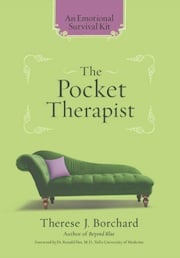
Today I have the honor of interviewing Owen Stanley Surman, M.D., a practicing hospital psychiatrist known internationally for his work on psychiatric and ethical aspects of solid organ transplantation. Following the death of his wife, Dr. Surman devoted six years to writer a memoir, “The Wrong Side of an Illness: A Doctor’s Love Story,” which includes a deeply personal and unique view of events both tragic and transcendent. He now lives in Boston with his new wife.
Question: What words of wisdom would you give the spouse of a person struggling with chronic illness or terminally ill?
Dr. Surman: Chronic illness and terminal illness have a pervasive impact on how we live our lives and in our sense of identity. Loss of a loved one affects the part of ourselves that has led us to think in terms of “we” vs. “I.”
Family relations, personal finances and careers concede to new caretaking demands. Serious illness imposes a new set of rules. Future plans and dreams take a back seat and that entails loss.
1. We must learn to live in the moment. Patients and spouses may find new meaning and beauty in life, and in the power of love.
2. We must strive for acceptance. This is both a Christian concept and a Buddhist concept. People of Islamic faith who come from abroad for medical care often speak of “God’s Will.” Acceptance comes easier for some than others. It can take time. Hope may derive from a personal philosophy that is spiritual, mystical or scientific.
3. We must identify the choices that we do have. Live like a surfer! We do not command the tides. We must use every available strategy that is positive; climb back up when we fall off. Adapt.
4. Enlist the help of friends and family. Assist those who want to help to participate in a way that is practical and manageable. Friends and family can help with telephone communications, child-care, meal preparations, hospital visits and transportation. Some suggestions:
- Devise a schedule.
- Avoid duplication of efforts.
- Advise people how long to visit. Illness causes fatigue.
- There is a language of caring. Being there and listening are important.
- Forget the cheering section. The warmth of friendship is a great comfort.
5. Learn to communicate effectively with the children. The Marjorie Korff PACT program at Massachusetts General Hospital Cancer Center is a good resource. For access to Parenting at a Challenging Time (PACT) enter www.mghpact.org/home.php
6. Grief is normal. There are no stages. With tragic events one’s perspective can change in minutes. Denial, anger, sadness, relief, moments of joy, and waves of crying are a tossed salad of emotion.
7. Sometimes grief is complicated by insomnia, excessive withdrawal, depression, irritability, alcohol or drug abuse, or suicidal thoughts. Seek professional help. Psychologists, psychiatrists, and social workers can be located with your doctor’s help, or through professional societies, medical schools and community health care centers.
8. Maintain hope. Second opinions are acceptable. Medical practice provides no crystal ball. Beyond statistics, we are each unique.
Question: How are some ways you live differently now that you have lived through such a tragedy? You say your primary message is that we only have this moment and that love is a precious gift. What are some specific ways in which we might do that?
Dr. Surman: This is a wonderful question. When Lezlie died I felt empty, old. At the funeral one of her closest friend said, “You have had the love of your life.”
I bought a Persian rug at auction, a deep red Sarouk. I would lie on it in the living room like a modern day Sinbad. It offered no magic. I obsessed about personal ads, met women for lunch and cried on the way home. I believe I was looking for Lezlie and imagined she was looking as well when I discovered a much younger woman and arranged for her essential medical care. My daughter Kate enjoyed her company but said much later, “We all knew nothing would come of that.” At day’s end I would arrive home to our idyllic Sherborn and imagine calling out, “Lezlie, Lezlie!” I would pretend to hear her lilting Canadian voice calling back, “Hi, O!” She was my world and I was hers.
It was awful, except that I found meaning in the practice of medicine. I had always loved my work but I discovered a new candor and fulfillment. I had crossed a certain boundary and could temporarily become the patient I was treating.
There was more: In Lezlie’s passing, I began to live in the present. Tragedy had cast a spotlight on the beauty of life and the power of love. In Swan’s Way, I learned from Marcel Proust that the past resides in what one has shared in love. Lezlie was with me. Given an opportunity to present at a conference in Jerusalem I explored the Via Dolorosa. At the 12th Station of the Cross, I gazed at the extraordinary crucifix and lit a candle. “Lezlie,” I said amid an outpouring of soul wrenching tears, “This one is for you!”
Ten months after her passing, I had come to a form of acceptance. Lezlie had transcended the suffering of her shortened life and would live on in me. When I returned to Boston in September 1995, I met my future wife. We were engaged four years later. “Ask Lezlie if she would like to live with us,” she said.
I do believe that we are surfers. We ride the wave that life presents. The answer is knowledge of that extraordinary gift and in the love we share with family and community. It is Love that makes us immortal.
* Click here to subscribe to Beyond Blue and click here to follow Therese on Twitter and click here to join Group Beyond Blue, a depression support group. Now stop clicking.

